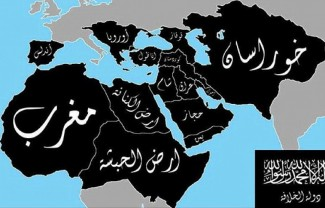The Paris attack suggests me a specific question in relation to the strategy that is currently being applied by Daesh and the consecutive international response to it.Foreword: IS has already demonstrated and keeps on showing its strategic acuity, at ITSTIME we spent thousands of words underlining the Caliphate’s communication expertise and ability, also at the operative level, despite the military action in Paris displayed some gross mistake, and I repeat, purely on a military base (please pay attention to the fact that the operative and communicative value of the Daesh strategy can not be divided and analysed independently), various voices from the battlefield confirm the great tactical intelligence that IS has in managing advancements and retreats.
Question: Given the current situation in Iraq and Syria, where IS seems to be under attack and given the large superiority of its enemies’ forces (I refer to the regional and international adversaries of Daesh) in terms of capabilities and resources (and I suppose IS was aware of this little detail), why did it strike France again? A country that was already conducting air strikes against the islamic state and, as a consequence, running the serious risk to see, really, “boots on the ground” as a response and being wiped away from this world?
Hypothesis 1: IS already knew the scale of the French (and international) action in retaliation, meaning that someone informed the caliphate about it. I am perfectly conscious that that sounds a bit like a conspiracy theory but, as an hypothesis, it can not be ruled out. However, I keep on thinking if there is some international actor financing terrorism and IS specifically, and Obama made it clear at the G20 in Turkey, why should not exist some other actor providing Daesh with critical information? Of course these information might have come to the ears of IS decision makers through indirect channels as well.
Yet, personally esteeming the Daesh sharpness, I think it knows that in politics certainty and reliability are pretty relative concepts, and hence, I would not enter the tiger’s cage only because custodian’s told me that the feline is sleeping!
Hypothesis 2: IS, after having analysed the past and present measures used to fight it, foresaw a low level risk of seeing enemy’s troops being deployed against it, groped the fate and acted.
Reasoning on it: obviously a careful risk analysis should have included, as a possible option, the US response to the 9/11 attack, but this time the strike was not against the US and its relative power and capability to take whatever strong action and mobilise serious coalitions.
Moreover, if we try to perform the same risk analysis, we immediately see the weakness of the instruments used to fight Daesh. Using only air strikes is useful to contain and useless, alone, to eradicate. True, those strikes saw an increase in scale after Russia stepped in the conflict but, their effect is still limited and the renovated effort of France and virtually UK, along the same line, will remain equally ineffective; Russia itself and its own coalition, although using its own troops on the ground and these provided by the Iranian front (Iranian, Syrian, Hezbollah and Iraqi militias), seem to be rather ambivalent in fighting against the rebels first, within this context each stakeholder defends its own interests, and the caliphate later; The US coalition shows its own ambivalences, based on individual stakes, as well; sending troops, for the West, seems to be out of discussion, even though the positions may change in future, depending on events and the ongoing diplomatic talks (a very unlikely scenario at the moment); cutting finance is again good for limiting and weak for eliminating, especially given the strong IS ties with international crime, the still unclear origins of the funding, and the funds received from different actors (sovereign and not); and, last but not least, sharing intelligence. It is a necessary tool, still good to limit not to eliminate, and it is already difficult to be performed at a national level, I let the reader wonder its applicability at an international one.
Summing up the issue, beyond a general lack of strategic coordination among the fragmented IS adversaries, as demonstrated by the Turkish downing of a Russian jet, right this morning, and the consecutive chain of reciprocal accusation, that Putin called a “stab in the back”, true, but of the international anti-IS coalition’ s credibility.
The whole counter strategy (as laid down in Ankara) appears to be oriented toward the control of the threat rather than its clearance (and IS knows that). Hence, yes, the response was foreseeable but, I would not place my head as the stake of a bet.
Answer: I do not have it. Yet, I do have doubts: if France really wanted to destroy Daesh and strongly respond to the act of war it upholds to have suffered, why did it choose the UNSC resolution 2249 instead of the North Atlantic Treaty and its article V? Maybe it wanted to create as the widest coalition as possible and include Russia within it.
Why, even before going to the Security Council, did it exhume art. 42.7 of the Lisbon Treaty and its principle of mutual assistance? Maybe it was to try to unify a weak and separated Europe against a common menace, true, the EU will win united or die divided, but the European problems when it comes to security and defence issues were absolutely not a surprise.
To conclude, the last query: what does actually mean, citing the word pronounced by president Obama «redouble our efforts» to eliminate IS? Probably increasing what is already being done, unfortunately it seems to be not enough.

